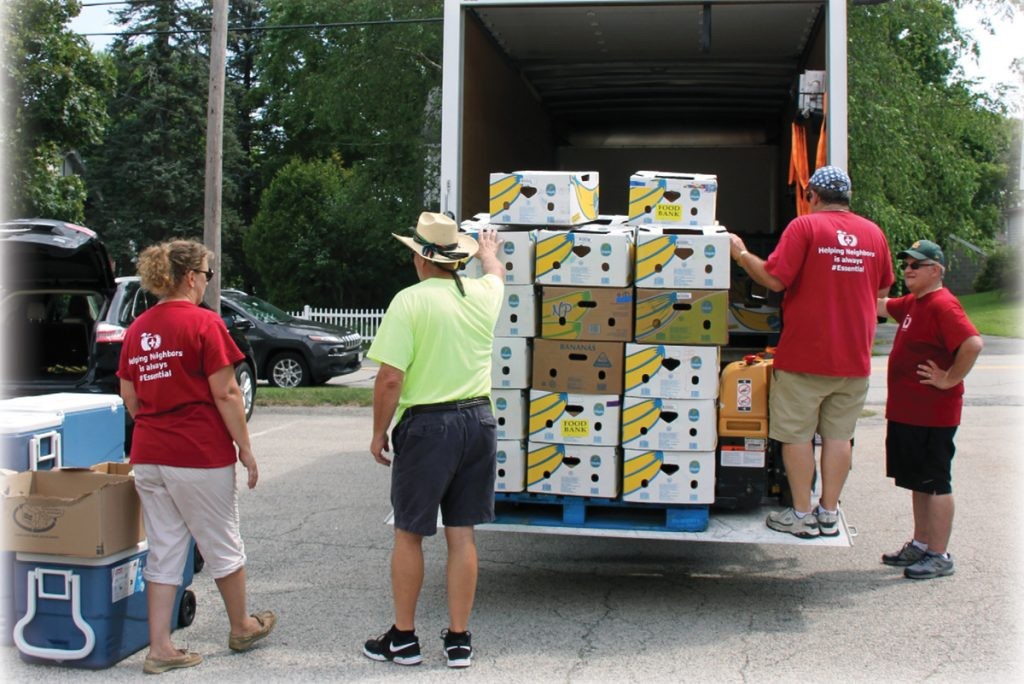Food waste is a significant global issue with far-reaching consequences. While we often focus on food insecurity and access to nutritious meals, the sheer volume of food that is wasted throughout the production and consumption cycle demands our attention. This guide will explore the complexities of food waste, its impact, and provide actionable steps you can take to reduce waste and contribute to a more sustainable food system.
The problem of food waste is complex, intersecting with environmental concerns, economic realities, and social justice issues. While individual actions are important, systemic changes are needed to address the root causes of this pervasive problem.
Understanding the Scale of Food Waste
Food waste occurs at every stage of the food supply chain, from agricultural production to household consumption. Fruits and vegetables, due to their perishable nature, are among the most commonly wasted food items.
According to the World Wildlife Fund, around 2.5 billion tons of food goes uneaten every year – 40% of the food that’s grown.
This wasted food has a huge impact on the environment. It is estimated that 8–10% of global greenhouse gas emissions are associated with food waste.
The Environmental Impact of Food Waste
When food ends up in landfills, it decomposes anaerobically (without oxygen), producing methane, a potent greenhouse gas that is much more harmful than carbon dioxide. Beyond methane emissions, food waste contributes to a range of environmental problems:
- Resource Depletion: The production of food requires vast amounts of water, land, energy, and other resources. When food is wasted, all of these resources are squandered.
- Pollution: Agricultural practices can lead to water pollution through the use of fertilizers and pesticides. Food processing and transportation also contribute to air and water pollution.
- Deforestation: In some cases, land is cleared for agriculture to produce food that ultimately goes to waste, contributing to deforestation and habitat loss.
The Economic and Social Costs of Food Waste
Beyond the environmental consequences, food waste also carries significant economic and social costs:
- Economic Losses: Food waste represents a direct economic loss for farmers, businesses, and consumers. The cost of wasted food includes the cost of production, transportation, storage, and disposal.
- Food Insecurity: While vast amounts of food are wasted, millions of people around the world still suffer from hunger and malnutrition. Reducing food waste could help to make more food available to those who need it.
- Ethical Concerns: It is ethically problematic to waste food when so many people lack access to adequate nutrition. Addressing food waste is a matter of social justice and equity.
Practical Tips for Reducing Food Waste at Home
While systemic changes are necessary to address food waste on a large scale, there are many practical steps you can take at home to reduce your own contribution to the problem:
- Plan Your Meals: Before going grocery shopping, plan your meals for the week and make a detailed shopping list. This will help you avoid impulse purchases and ensure that you only buy what you need.
Alt text: A family collaboratively plans their meals, contributing to reduced food waste and efficient grocery shopping.
- Store Food Properly: Proper food storage is essential for preserving freshness and preventing spoilage. Store fruits and vegetables in the refrigerator crisper drawers, and use airtight containers for leftovers.
- Understand Expiration Dates: Many consumers misunderstand expiration dates, leading them to throw away food that is still perfectly safe to eat. “Best by” or “use by” dates are often indicators of quality, not safety.
- Get Creative with Leftovers: Leftovers can be transformed into new and exciting meals. Use leftover vegetables in soups, stews, or stir-fries. Turn leftover meat into sandwiches or salads.
- Compost Food Scraps: Composting is a great way to reduce food waste and create nutrient-rich soil for your garden. Even if you don’t have a garden, you can compost food scraps in a countertop composter or through a local composting program.
Supporting Initiatives that Combat Food Waste
Beyond individual actions, there are many ways to support initiatives that are working to reduce food waste on a larger scale:
- Support Food Banks and Food Pantries: Food banks and food pantries collect and distribute surplus food to people in need. By donating food or volunteering your time, you can help to reduce food waste and fight hunger.
- Advocate for Policy Changes: Support policies that incentivize food waste reduction, such as tax breaks for businesses that donate surplus food or regulations that restrict food waste disposal in landfills.
- Support Businesses that Prioritize Food Waste Reduction: Choose to support restaurants, grocery stores, and other businesses that are committed to reducing food waste through practices such as composting, food donation, and waste tracking.
- Get Involved in Community Initiatives: Many communities have local initiatives aimed at reducing food waste, such as community gardens, food recovery programs, and educational campaigns.
Alt text: A graphic from the Greater Boston Food Bank illustrating the difficult choices food-insecure households face between food and other necessities.
Conclusion: Towards a More Sustainable Food System
Reducing food waste is a complex challenge that requires a multifaceted approach. By understanding the scope of the problem, taking practical steps to reduce waste at home, and supporting initiatives that are working to address food waste on a larger scale, we can all contribute to a more sustainable and equitable food system. Food waste is not just about the landfill; it’s about respecting the resources that go into producing our food and ensuring that everyone has access to enough nutritious meals. It’s about valuing food for its true cost and taking responsibility for our part in the food system.
